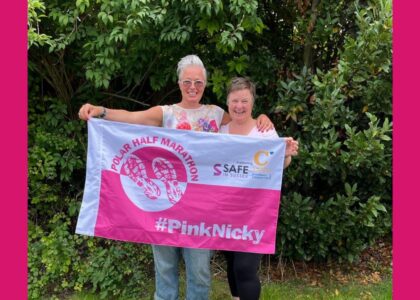I am a big fan of leaving things to the last minute, but I’m also a big fan of planning. It doesn’t sound like these things can sit harmoniously alongside one another does it?
That’s until you realise that I am an active procrastinator. I love putting things off until they actually need doing. There’s no question that the things I’ve committed to do will get done. They just won’t get done ahead of time. I love a deadline and being a deadline bandit, screaming to a halt at the very last minute with everything complete makes things fun and exciting for me. BUT – don’t be fooled into thinking that I am not spending an awful lot of time planning for my big finish. How I use my time works for me. It won’t work for everyone.
Sometimes we do everything we can to distract ourselves from the task that needs doing until it feels like a weight around our shoulders. But there are ways to beat procrastination and stop it from ruining your day.

Passive procrastination is less productive than active procrastination. We can spend time distracting ourselves and putting off the inevitable until it feels so huge that we can’t ignore it any more. There are a number of reasons why we put things off but here I’ll talk you through four of the most common ones.
- You shouldn’t have said Yes in the first place – for some reason, you agreed to do something that you either didn’t want to do, don’t know how to do, or were obliged to say Yes to, even though you knew at the time that it was really unlikely that this would get done.
Solution – make yourself a decision filter and only agree to take on tasks that meet your own criteria. Decide what 3 things are most important to you and only say Yes to things that meet all of these criteria.

2. You are talking about the task in terms of possibility or impossibility, rather than necessity. Let me explain; if you find yourself saying things like ‘I could do that….’ you are also leaving the door open to ending the sentence with ‘but I won’t’. You may say ‘I might do that later…..’ which leaves the path clear to add ‘or I might not’. Talking about a task as if it is optional or possible but not necessary or mandatory gives you an indication that you aren’t that motivated to complete it.
Solution – make it mandatory in your own mind – talk about the task in terms of ‘I will do that’ or ‘I must get that done before 2pm’. This way you are much more likely to get it done.
3. Your heart sinks when you think about the task. Notice what your body tells you about the task when you think about it. If it leaves you feeling less than excited, consider whether it fits into either of the categories above, and if you can, ditch it from your list.
Solution – notice your body’s response to the task before you commit to it. If your reaction isn’t positive, you aren’t likely to complete it well or with good results. Best to say No with grace.

4. Indecision strikes. If there are many ways to complete your task or you aren’t sure how best to compete it, it can be easy to put it off until inspiration arrives or you choose the perfect way.
Solution – just choose one way and get it done. It doesn’t matter if it’s the best way or the perfect outcome. Done is better than perfect. And once it’s done, the feeling will be better than the feeling of having the task hanging over you.
Remember though, that procrastination is in fact a very special type of motivation – having the motivation to not do something will often be a clue that you’re using your energy on things that don’t inspire or drive you. Perhaps you need to give more thought to the ways that you spend your energy during your days and what you really want to spend your time doing!

However you manage to beat procrastination, the feeling of achievement when you’ve completed your task should be worth it – if it isn’t, perhaps you need to factor in some more rewards into your motivation strategies, but more on that another time.
With love,
Zoé






